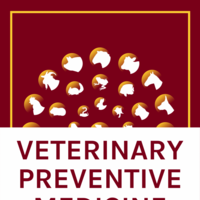Search
Books+
Searching 1,73 books
Search related to the career Veterinarian
Responsibilities of a Veterinarian:
1. Animal Care and Treatment: Veterinarians are responsible for providing medical care and treatment to animals. This includes diagnosing illnesses, prescribing medications, performing surgeries, and administering vaccinations.
2. Preventive Healthcare: Veterinarians educate pet owners about preventive measures to ensure the overall health and well-being of animals. This may involve recommending regular check-ups, vaccinations, parasite control, and nutrition advice.
3. Emergency Care: Veterinarians are often on-call to handle emergency situations, such as accidents, injuries, or sudden illnesses in animals. They must be prepared to provide immediate medical attention and stabilize the condition of the animal.
4. Diagnostic Procedures: Veterinarians conduct various diagnostic tests, such as blood work, X-rays, ultrasounds, and laboratory analysis, to identify the underlying causes of animal illnesses or injuries.
5. Surgical Procedures: Veterinarians perform surgeries on animals, ranging from routine procedures like spaying and neutering to more complex surgeries such as tumor removal or orthopedic procedures.
6. Client Communication: Veterinarians communicate with pet owners to explain diagnoses, treatment options, and prognosis. They provide guidance on animal care, answer questions, and offer support and empathy during difficult situations.
7. Record Keeping: Veterinarians maintain detailed and accurate medical records of animals they treat. This includes documenting medical histories, examination findings, treatments administered, and any follow-up care required.
8. Continuing Education: Veterinarians stay updated with the latest advancements in veterinary medicine by participating in continuing education programs, attending conferences, and reading scientific literature. This ensures they provide the best possible care to animals.
9. Collaboration: Veterinarians often collaborate with other veterinary professionals, such as veterinary technicians, assistants, and specialists, to provide comprehensive care for animals. They may also work with animal shelters, rescue organizations, or government agencies to address public health concerns.
10. Ethical Considerations: Veterinarians must make ethical decisions regarding animal welfare, euthanasia, and treatment options. They advocate for the well-being of animals and may report cases of animal abuse or neglect to appropriate authorities.
Source: Various AI tools




















